How to do SEO of your WordPress Website?
Search engine optimization is a very crucial and important process. Te success of a website depends upon its SEO ranking to a large extent. This is why it is imperative to carry out a thoroughly well-organized SEO campaign for your website. With good search engine optimization, a website stands far better chances of getting acknowledged by users as well as search engines. Therefore, if you have a website running, you must ensure that it is well optimized as per proper search engine rules. This post aims at providing a holistic view on how to do the SEO of a WordPress website. Read further and you will find out how to effectively optimize a WordPress site to get quality traffic and better search engine ranking.
Basic Technical Optimization
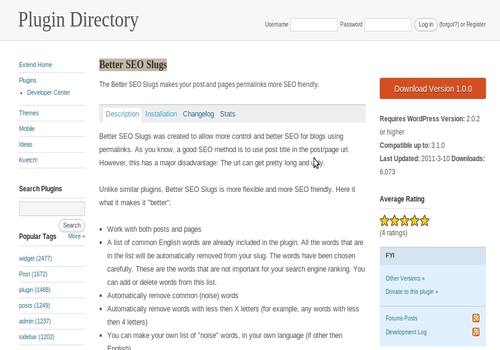
Let us first see how to do the basic technical optimization. Although a WordPress website has some built-in optimization features that allow every single page to be indexed, but there are certain things you can do to make it more effective. First of all, you should change your permalink structure.
After changing it, you can install the Redirection plug-in. By doing this, you can easily change your permalinks to SEO friendly permalinks. You should also install SEO Slugs plug-in. This plug-in automatically removes stop words from your slugs when you save a post. Hence, you would not get those annoying and long URLs when you do a sentence style post title.
Optimize Your Titles
You should also optimize your titles for SEO. The default format of your blog post is- Blog title–> Blog archive–> keyword rich post title. However, if you want quality traffic for your WordPress site then it should be the other way round. There are two reasons for this. First, search engines give more preference to early words. Therefore, if your keywords are in the beginning of the page title, your site will have greater chances of getting ranked well. Secondly, when users land on a page, they see the early words first. Hence, if you have keywords in the beginning of your listing, the chances of your page getting clicked on will definitely improve.
Tools to Optimize Titles
There are several tools available to aid you in optimizing the titles of each of your post and perhaps the best amongst them is HeadSpace. This doesn’t interfere with your control over choosing the titles and makes sure that the title is search engine optimized. By describing each of the category in an intelligent way, you can easily optimize the descriptions as well.
Also, by using HeadSpace you can add these descriptions to the meta description, by adding %%category_description%% in the Description field. You can now write description for each post. One of the most important functions of description is to attract visitors and make them click.
Image Optimization
Images also need to be optimized. The truth is that images are mostly overlooked. If you optimize your images well, you can expect good results. For instance, if you write good alt tags for images and name your files in a good way, you site is likely to receive extra traffic from different search engines. However, if you can not do this due to paucity of time, then you can make use of a plug-in called SEO friendly Images. Title of the post and images get automatically added to the image’s alt and title tag.
Template Optimization
Let us now talk about template optimization. The breadcrumbs should line back to homepage as well as the category in which the post is. Likewise, if it is a multiple category post, then it should be able to pick one. There is a plug-in called Breadcrumb available for this purpose. Good headings are also important for good SEO ranking. Ensure that the name of your blog is an <h1> on your front page. In case of single post, and category pages, it should not be more than an <h3>. Code should also be cleaned up. To make your templates clean, move the JavaScript and CSS files. This ensures that users can cache those files on first load, and search engines do not have to download them most of the time. It is important to improve the speed of your WordPress site to ensure that search engines crawl your blog every day. To improve the speed you can optimize the template to do as small an amount of database calls as necessary. You should also install a caching plug-in to make your blog faster.
Content Should not be Duplicate
After working on this basic stuff, you need to focus your attention to the issue of duplicate content. First of all, install a good plug-in to ensure that settings prevent indexing of all archive pages. This will help the search engines to follow all the links on these archive pages, but it would not show those pages in the index. You can either do this or just show a snippet of each post on the archive page. You should also disable unnecessary archives. If you do not need author archives or yours is a one author blog, then you can use a plug-in to disable the author archives. Also, disable the database archive if that is not needed. You should also ensure that a search engine bot is able to reach all underlying pages easily. For this you can use plug-ins like WP-PageNavi. If there are unnecessary links, it is better to nofollow them. Also, avoid linking to your log in and registration pages from every page on your blog.
Best Site Structure
You also need to pay attention to the site structure for better search engine ranking. Make pages instead of posts. By doing this, you can easily update them. If any post on your blog ranks high for a good keyword then you should create a new page with updated and improved content. You should also change the slug of the old post. The new page can also be published under the old post’s URL or the old post’s URL can be directed to the new URL. Make sure that you always link to related posts. It facilitates the search engines to easily glide back into the previous content of concerned blog or website. Besides WordPress also provide you with a beneficial plug-in – related posts, to execute the same task. What such a plug-in does is search through your posts database to find posts with the same subject, and add links to these posts.
Conversion Optimization
Conversion optimization is also important. You should try to get maximum readers to subscribe to your site. For this, it is important to have a big RSS subscribe button. You can also offer daily and weekly e-mail subscribe options. It is better to have people to subscribe when they have just commented on your blog for the first time.
Comment Optimization
Similarly comment optimization is equally important. You should try to get the readers involved. In fact, comments are one of the most important aspects of a blog. You should ask people to comment. Ask your readers to share their opinion on your posts. You should also try to bond with the people who comment on your posts. Keep them in conversation. You can install Subscribe to comments plug-in. It allows users to subscribe to a comment thread.
You can also do off site blog SEO. This can be done by following people who commented on your posts, and using Twitter. By following all the above mentioned points, you can effectively optimize your WordPress website for better SEO ranking and good sales.



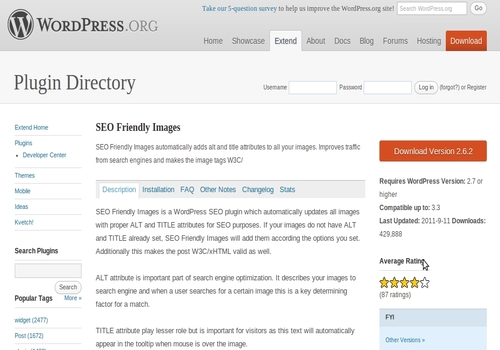
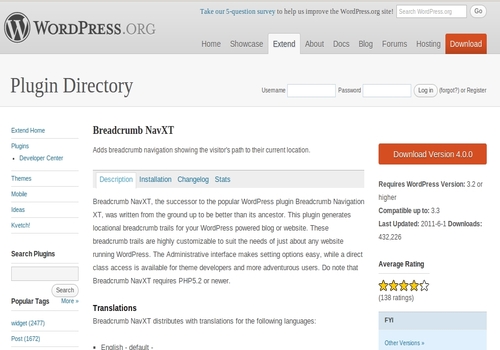
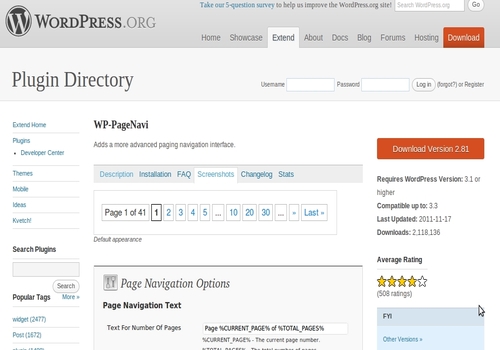

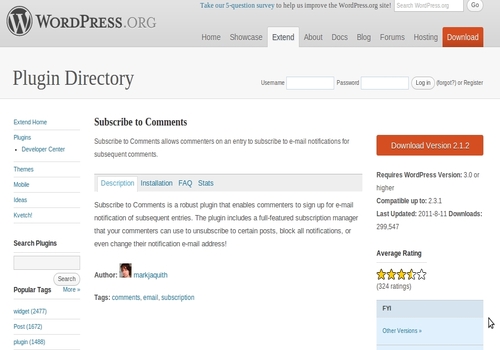








Thanks for the detailed article. i think I can do a post about this on my site.
Thanks for share great list of wordpress SEO plugin here
Organized content is the best way to display or post an article, thank you for making it easy to digest your post.
Very nice article. Clear explanation about SEO, thanks for the sharing the information.
Nice and interesting blog, presentation is good.Thanks for sharing.
Great info i Like this blog